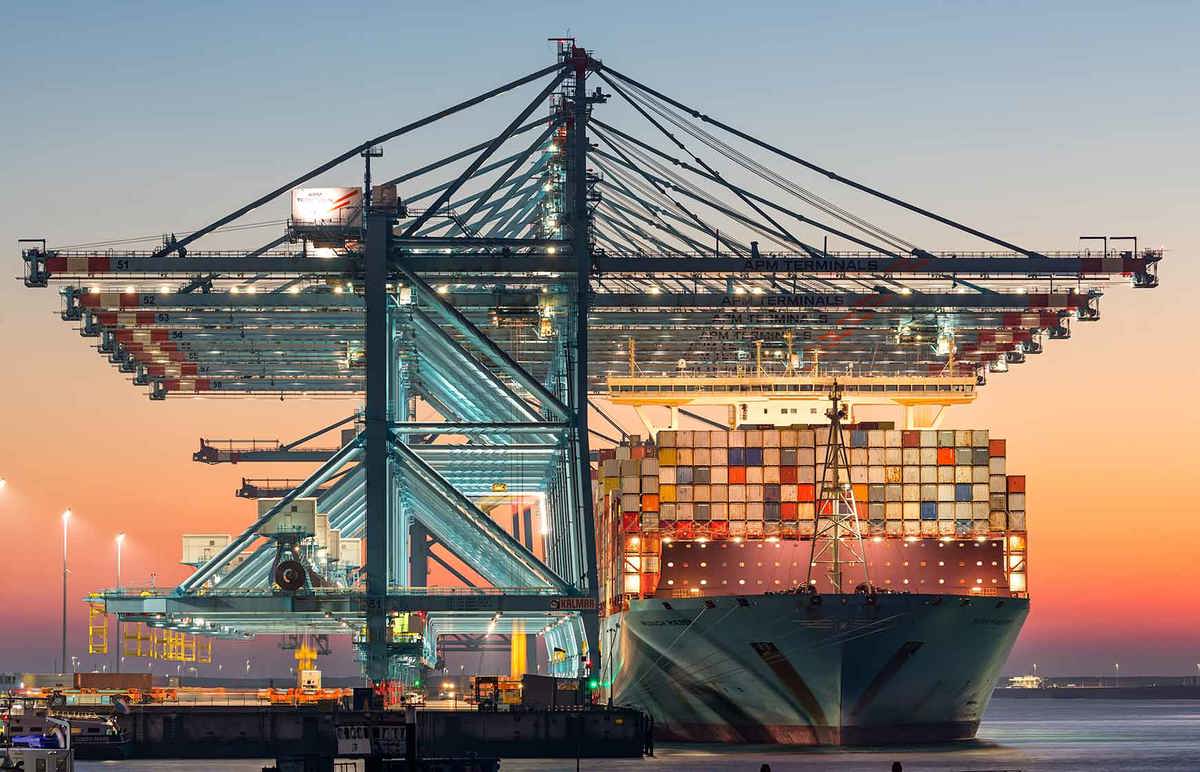Rotterdam and Antwerp ports urge swift action on EU Clean Industrial Deal
The EU must implement concrete measures to reduce investment risks associated with the production and purchase of green fuels, the port authorities of Rotterdam and Antwerp-Bruges note.
 PHOTO: Container ship docked at APM Terminals' Maasvlakte deep-sea terminal in Rotterdam. APM Terminals
PHOTO: Container ship docked at APM Terminals' Maasvlakte deep-sea terminal in Rotterdam. APM Terminals
The European Commission (EC) has proposed a Clean Industrial Deal (CID) action plan to prioritise domestic production of green fuels and technologies by mobilising at least €100 billion ($105 billion) in funding through national and EU-level ETS allowances and reducing red tape around permitting, investment approvals and regulatory processes.
The CID builds on the EU Green Deal’s ambitions and maintains the targets of a 55% reduction in net GHG emissions by 2030, 90% by 2040 and net-zero by 2050.
Some proposals, including the creation of a green hydrogen mechanism and the development of an investment plan for sustainable transportation, are particularly relevant to shipping.
The port authorities of Rotterdam and Antwerp-Bruges have urged the EU to implement these measures urgently, with “targeted measures and clarity” to reduce investment risks in the production and purchase of renewable energy and green fuels.
Encouraging private sector investment in green fuel infrastructure is critical to scaling up production, a joint statement from the port authorities emphasised.
The ports have also called for faster revisions to the definitions and criteria of "renewable hydrogen" to kickstart the market. Under the EU's current definition, only hydrogen produced from electrolysis using renewable energy or biomass reforming qualifies as "renewable hydrogen." Blue hydrogen, produced from natural gas with carbon capture, does not meet this criteria. But multiple industry experts like DNV and the Global Maritime Forum support its use in shipping and low-carbon bunker fuel production.
The port authorities also advocate for a broader strategy that strengthens international industrial clusters rather than focusing on specific regions or sectors.
The European Commission has called on national governments for short-term measures to reduce green energy costs, coordinate infrastructure and comply with EU regulations. The ports emphasise that EU-wide policies must be complemented by national efforts to accelerate industrial decarbonisation.
By Konica Bhatt
Please get in touch with comments or additional info to news@engine.online





